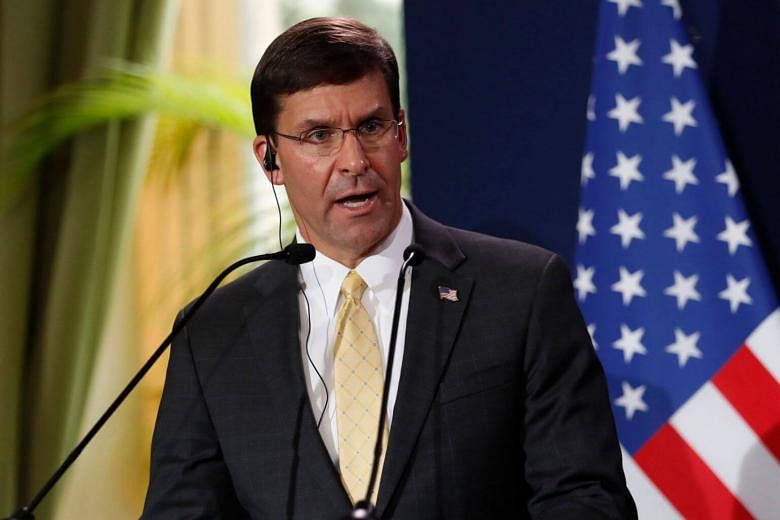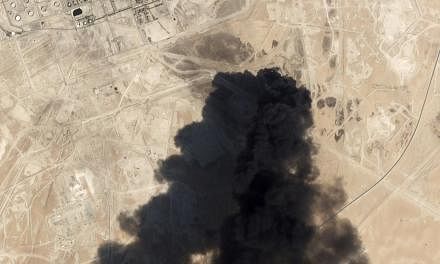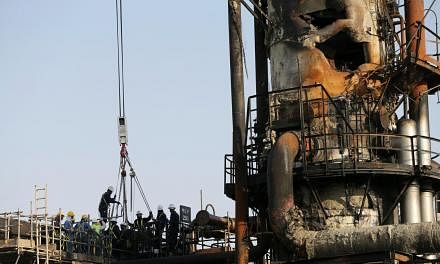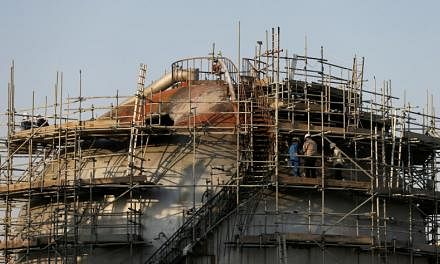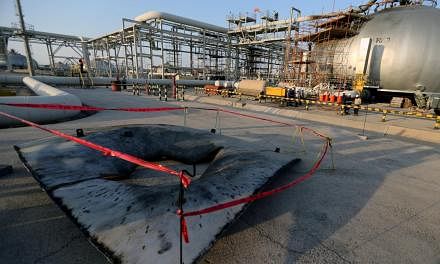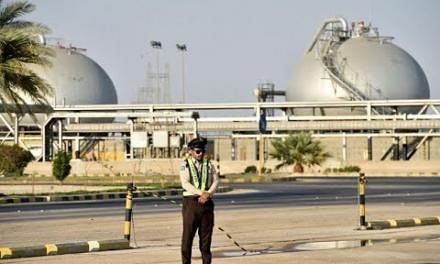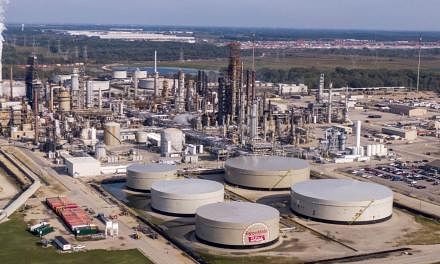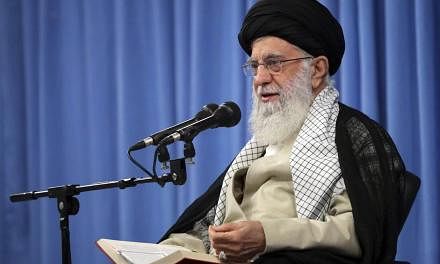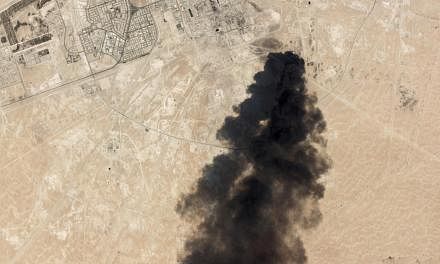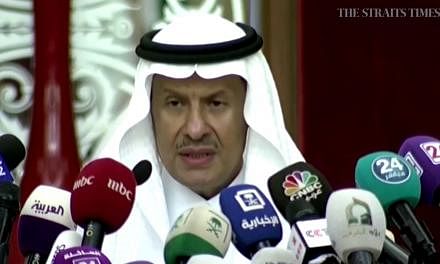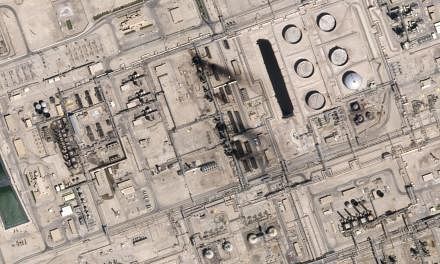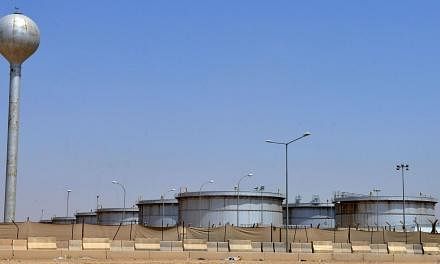WASHINGTON • The US will send a "moderate" number of troops to the Middle East and additional missile defence capabilities to Saudi Arabia in response to last weekend's attack on oil facilities, top Pentagon officials said.
Secretary of Defence Mark Esper said on Friday that the decision came at the request of Saudi Arabia and the United Arab Emirates and represented a "first step" in the US response. He reiterated US statements that evidence collected to date shows Iran was responsible for the attacks.
The briefing by Mr Esper and General Joseph Dunford, chairman of the Joint Chiefs of Staff, followed a meeting of national security officials at the White House.
"Iran is waging a deliberate campaign to destabilise the Middle East," Mr Esper told reporters at the Pentagon. He added that the United States has shown "great restraint" in responding so far, but called the strike on Saudi Aramco facilities on Sept 14 a "dramatic escalation".
Mr Esper and Gen Dunford are still deciding on the specific number of troops and weapons systems but said the personnel deployment will be relatively small, not numbering in the thousands, and that more details would be forthcoming.
In addition to the US missile defence assistance, Mr Esper said "we are calling on many other countries who all have these capabilities to do two things - stand up and condemn these attacks" and also contribute equipment.
US and Saudi analyses of the attack have described the strike as complex, involving a mix of low-flying drones and cruise missiles coming from the north. The attack exposed glaring vulnerabilities in Saudi Arabia's defence capabilities despite having spent hundreds of billions of dollars on weaponry in recent years.
Saudi Arabia has already taken delivery of Patriot-3 hit-to-kill missiles bought years ago to defend against cruise and ballistic missiles. The kingdom earlier this year finalised a long-sought-after contract for Lockheed Martin Corp's Thaad missile interceptors designed to intercept ballistic missiles at higher altitudes. It is not known whether any Thaad batteries have been delivered.
"No single system is going to be able to defend against a threat like" the combination of systems launched against Saudi Arabia in the attack, Gen Dunford said. "But a layered system of defensive capabilities would mitigate the risk of swarms of drones or other attacks that may come from Iran."
US Secretary of State Mike Pompeo returned early on Friday from a two-day trip to Saudi Arabia and the UAE, saying he wanted to begin building a coalition that would organise a response to Iran.
During a news conference earlier on Friday, President Donald Trump signalled that he was trying to avoid a military conflict. On the same day, the Treasury Department announced it was sanctioning Iran's central bank and sovereign wealth fund, a move aimed at squelching any remaining trade the country conducts with Europe and Asia.
Yemen's Houthi rebels have claimed responsibility for the strike on Saudi Arabia but the US says it has concluded the attack involved cruise missiles from Iran and amounted to "an act of war".
Iran has denied its involvement but yesterday said any country that attacks Iran will become the "main battlefield", after the Pentagon ordered reinforcements to the Gulf.
Iran is "ready for any type of scenario", Islamic Revolutionary Guard Corps commander Major-General Hossein Salami said.
